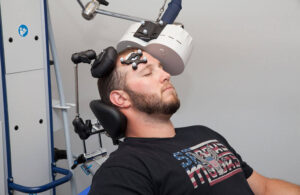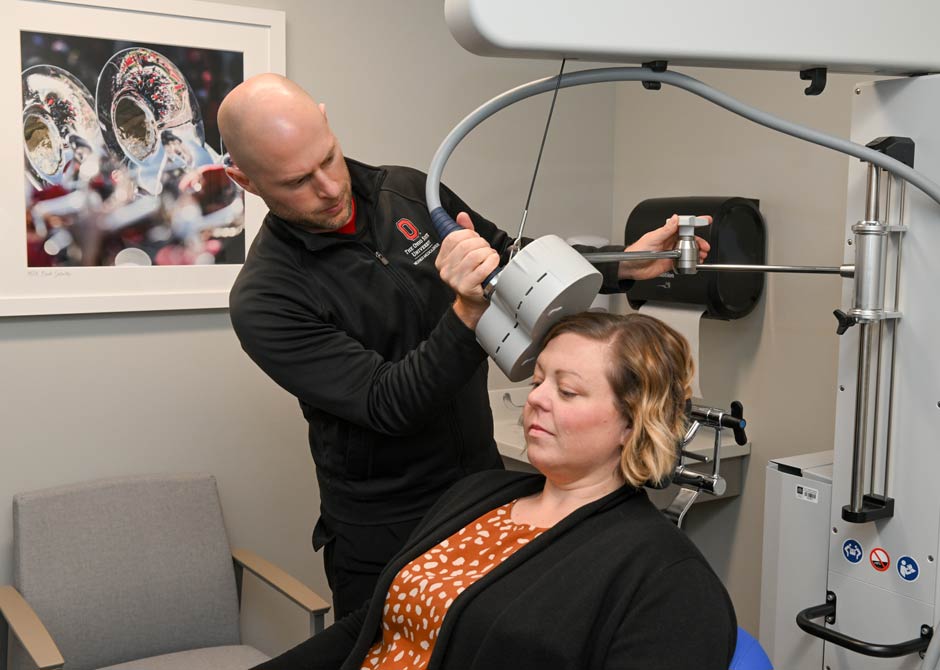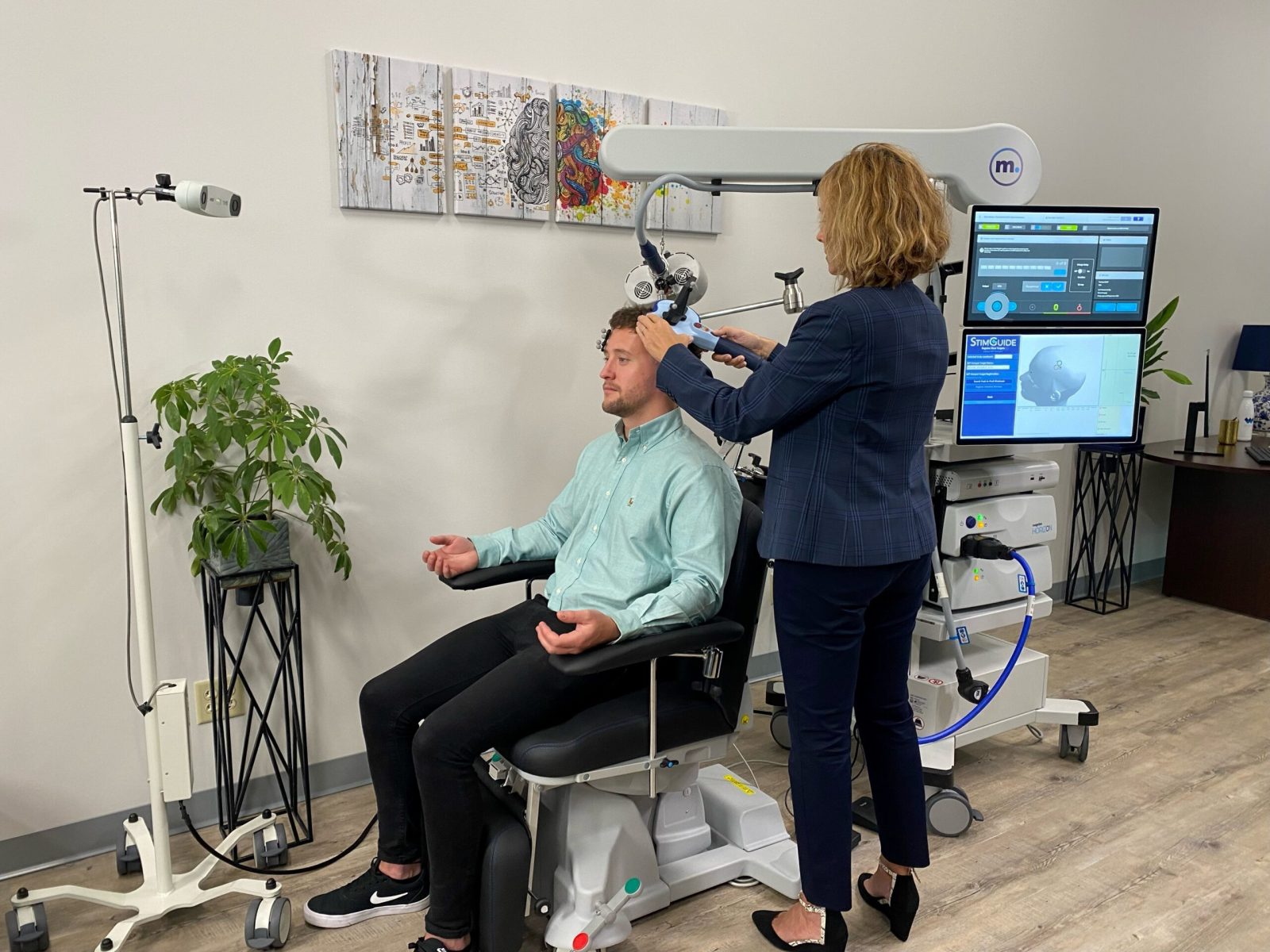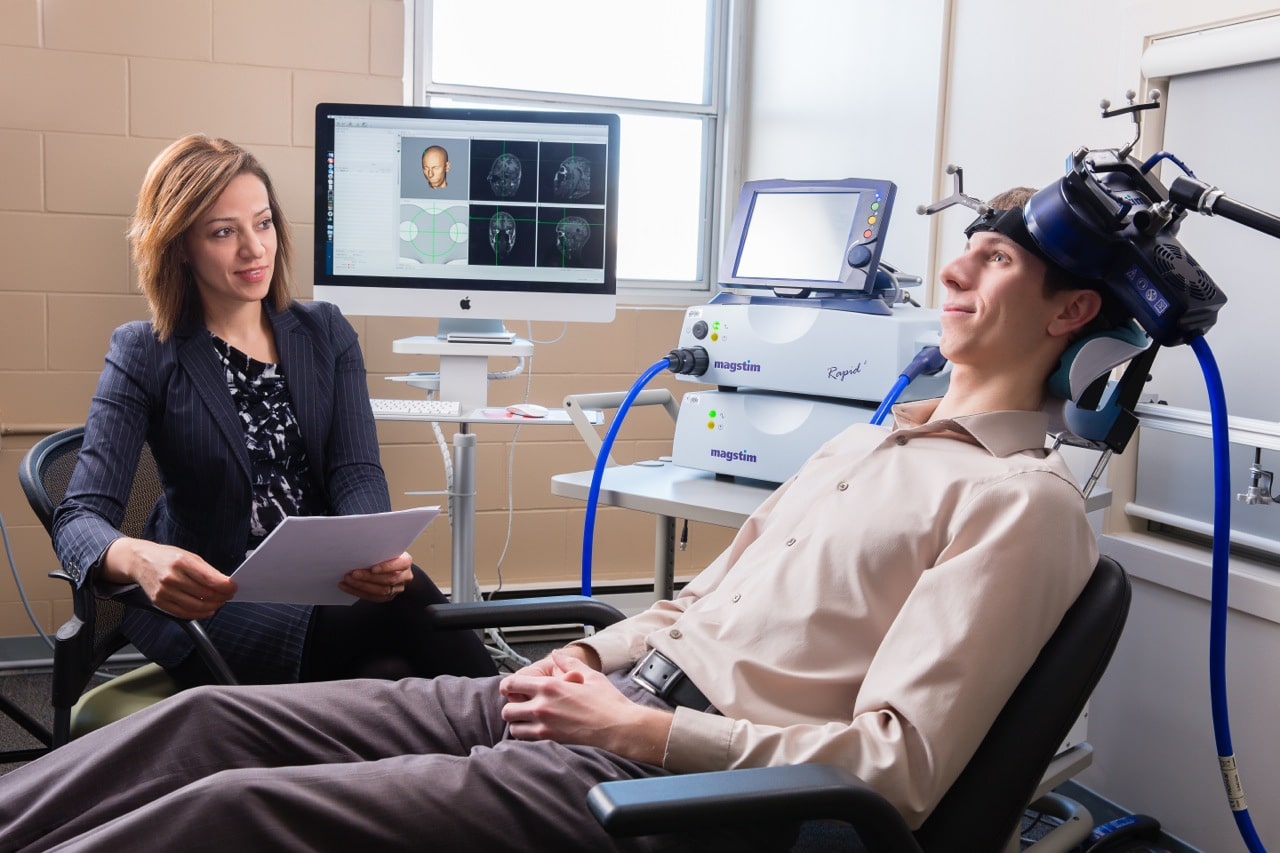
Discover the critical role of APNs in administering tms treatment apn for mental health, ensuring safe and effective care while enhancing patient outcomes. Learn how TMS and APNs are revolutionizing mental health treatment.
Introduction
Transcranial Magnetic Stimulation (TMS) has emerged as a groundbreaking treatment for various mental health disorders. Combining advanced technology with clinical expertise, this non-invasive technique offers new hope to patients. When Advanced Practice Nurses (APNs) are involved, the synergy of TMS treatment APN practices ensures that patients receive the highest quality care. APNs, with their vast knowledge and specialized training, play a pivotal role in enhancing the overall treatment experience. As mental health conditions such as depression and anxiety become increasingly prevalent, the importance of innovative treatments like TMS, guided by skilled APNs, cannot be overstated.
The Basics of TMS Treatment
At its core, TMS treatment involves using magnetic fields to stimulate specific areas of the brain responsible for mood regulation. The process is non-invasive, meaning no surgery or anesthesia is required, and patients remain awake during the procedure. By targeting areas like the prefrontal cortex, TMS helps regulate mood and alleviate symptoms of depression, especially for individuals who have not responded to traditional treatments like medication and therapy. TMS treatment APN professionals are crucial in ensuring that this innovative technique is administered safely and effectively.
How APNs Fit Into the TMS Treatment Process
APNs, with their advanced clinical training, bring a unique skill set to the administration of TMS. They assess patient suitability for the treatment, oversee the procedure, and ensure that the treatment plan is tailored to the individual’s needs. As part of their role in TMS treatment APN professionals conduct thorough evaluations to determine if patients are appropriate candidates for TMS therapy. They consider various factors, including the patient’s mental health history, previous treatments, and any underlying medical conditions that could influence the outcome.
APN’s Role in Patient Education and Communication
One of the essential roles of an APN in the TMS treatment process is patient education. Patients undergoing TMS often have questions or concerns about the procedure, its effectiveness, and potential side effects. The APN is responsible for ensuring that patients understand every aspect of the treatment, from the science behind it to what they can expect during and after the sessions. By explaining the procedure in clear, comprehensible terms, the APN ensures that patients are informed and confident in their treatment decisions. Additionally, open lines of communication between the APN and the patient foster trust, ensuring that any concerns or questions are addressed promptly.
Monitoring Progress and Adjusting Treatment Plans
During the course of TMS therapy, APNs play a critical role in monitoring patient progress. Each patient responds differently to the treatment, and it is the APN’s job to track how well the therapy is working. They adjust the frequency or intensity of sessions as needed to optimize outcomes. By continuously evaluating patient responses, the APN ensures that TMS treatment is personalized and effective. This monitoring process is essential, as it allows for real-time adjustments that enhance the treatment’s efficacy.

Ensuring Safety and Managing Side Effects
Safety is a top priority in TMS treatment, and APNs are at the forefront of ensuring that the procedure is conducted safely. While TMS is generally well-tolerated, some patients may experience mild side effects such as headaches or scalp discomfort. The APN is responsible for managing these side effects and ensuring that patients are comfortable throughout the treatment process. If any adverse reactions occur, the APN is equipped to intervene and make necessary adjustments to the treatment plan. Their ability to manage potential complications makes them invaluable in the administration of TMS therapy.
The Clinical Expertise of APNs in TMS Treatment
Advanced Practice Nurses possess a depth of knowledge that enhances the TMS treatment process. Their clinical expertise allows them to identify subtle changes in patient behavior or mood that may indicate the need for treatment adjustments. This keen attention to detail ensures that TMS therapy is not only effective but also tailored to meet the specific needs of each patient. By leveraging their clinical skills, APNs help patients achieve the best possible outcomes from their TMS treatment.
The Collaborative Approach: APNs and Other Healthcare Providers
TMS treatment often involves a collaborative approach, with APNs working closely with psychiatrists, neurologists, and other healthcare providers. This collaboration ensures that patients receive comprehensive care that addresses all aspects of their mental health. APNs act as a bridge between patients and the broader healthcare team, ensuring that everyone is on the same page regarding the patient’s treatment plan. This teamwork is crucial for the success of TMS therapy, as it ensures that patients receive well-rounded, multidisciplinary care.
TMS Treatment APN in Mental Health Facilities
In mental health facilities, APNs play a pivotal role in the administration of TMS treatment. Their presence in these settings ensures that patients receive continuous, high-quality care throughout their treatment journey. APNs oversee the entire TMS process, from initial consultations to post-treatment follow-ups. Their involvement in mental health facilities underscores the importance of having skilled professionals who can manage the complexities of TMS therapy. By integrating TMS treatment APN practices into mental health facilities, patients are provided with a holistic approach to care.
The Importance of Personalized Care in TMS Treatment
Each patient’s journey with mental health is unique, and TMS treatment must be personalized to reflect this individuality. APNs excel in providing personalized care, tailoring treatment plans to meet the specific needs of each patient. This personalized approach ensures that TMS therapy is as effective as possible. By understanding the nuances of each patient’s condition, APNs can make informed decisions that enhance the overall treatment experience. Their ability to customize care is one of the reasons why TMS treatment, under the guidance of an APN, is so successful.

Addressing the Stigma Around Mental Health Treatment
One of the barriers to seeking treatment for mental health conditions is the stigma associated with it. APNs are instrumental in breaking down these barriers by providing compassionate, non-judgmental care. By normalizing treatments like TMS, APNs help patients feel more comfortable seeking the help they need. They play a critical role in destigmatizing mental health treatment, making it more accessible to those who need it. Through education and advocacy, APNs are changing the narrative around mental health care.
APNs as Patient Advocates in TMS Therapy
Advocacy is a core component of the APN’s role in TMS treatment. APNs advocate for their patients by ensuring that they receive the best possible care. They work closely with patients to understand their needs and preferences, and they ensure that these are reflected in the treatment plan. By advocating for their patients, APNs empower individuals to take an active role in their mental health care. This advocacy extends beyond the treatment room, as APNs also work to promote awareness and understanding of mental health treatments like TMS in the broader community.
The Role of APNs in Research and Advancements in TMS Treatment
As the field of TMS therapy continues to evolve, APNs are at the forefront of research and innovation. Their clinical expertise and hands-on experience with patients provide valuable insights into how TMS treatment can be improved. APNs are often involved in research studies aimed at enhancing the efficacy of TMS therapy and expanding its applications. By contributing to research, APNs help shape the future of TMS treatment, ensuring that it continues to be a viable option for patients with mental health conditions.
APNs and the Future of TMS Treatment
The future of TMS treatment is bright, and APNs will continue to play a central role in its advancement. As more patients seek alternative treatments for mental health conditions, the demand for skilled professionals like APNs will increase. Their ability to provide personalized, compassionate care makes them indispensable in the administration of TMS therapy. Looking ahead, APNs will continue to lead the charge in making TMS treatment accessible to more patients, ensuring that everyone has the opportunity to benefit from this innovative therapy.
The Benefits of TMS Treatment APN Collaboration
The collaboration between TMS treatment and APNs offers numerous benefits to patients. APNs bring a unique combination of clinical expertise and compassionate care that enhances the overall treatment experience. By working together, TMS providers and APNs ensure that patients receive comprehensive care that addresses all aspects of their mental health. This collaboration is one of the key factors behind the success of TMS therapy, as it ensures that patients are supported at every stage of their treatment journey.
Integrating TMS Treatment APN Practices into Mental Health Care
Integrating TMS treatment APN practices into mental health care is essential for improving patient outcomes. By combining the technical aspects of TMS therapy with the personalized care provided by APNs, patients receive a more holistic approach to treatment. This integration ensures that TMS therapy is not only effective but also tailored to meet the unique needs of each patient. As mental health care continues to evolve, the integration of TMS treatment and APN practices will play an increasingly important role in improving patient outcomes.

The Role of Technology in Enhancing TMS Treatment APN Practices
Advancements in technology have played a significant role in enhancing TMS treatment APN practices. New developments in TMS technology have made the treatment more precise and effective, allowing APNs to deliver better care to their patients. By staying up-to-date with the latest technological advancements, APNs ensure that their patients benefit from the most cutting-edge treatments available. The intersection of technology and APN expertise is driving the future of TMS therapy, making it an increasingly effective option for patients with mental health conditions.
Addressing Patient Concerns About TMS Treatment
Patients considering TMS therapy often have concerns about the procedure, its effectiveness, and potential side effects. APNs play a crucial role in addressing these concerns, providing patients with the information and reassurance they need to make informed decisions about their treatment. By offering clear explanations and compassionate care, APNs help alleviate patient anxiety and build confidence in the treatment process. Their ability to address patient concerns is a key factor in the success of TMS therapy, as it ensures that patients feel comfortable and supported throughout their treatment journey.
The Growing Demand for TMS Treatment APN Professionals
As the demand for alternative mental health treatments continues to grow, the need for skilled professionals to administer these treatments is also increasing. TMS treatment APN professionals are in high demand, as their expertise is essential for ensuring the safe and effective administration of TMS therapy. As more patients seek out TMS as a treatment option, the role of APNs in the mental health care landscape will become even more critical. Their ability to provide personalized, patient-centered care makes them invaluable in the administration of TMS therapy.
Conclusion
TMS treatment, when combined with the expertise of APNs, offers a powerful solution for individuals struggling with mental health conditions. APNs play a vital role in every stage of the TMS treatment process, from patient education to treatment administration and follow-up care. Their ability to provide personalized, compassionate care ensures that patients receive the best possible outcomes from their TMS therapy. As mental health care continues to evolve, the role of APNs in TMS treatment will only become more significant, offering hope and healing to countless individuals.





